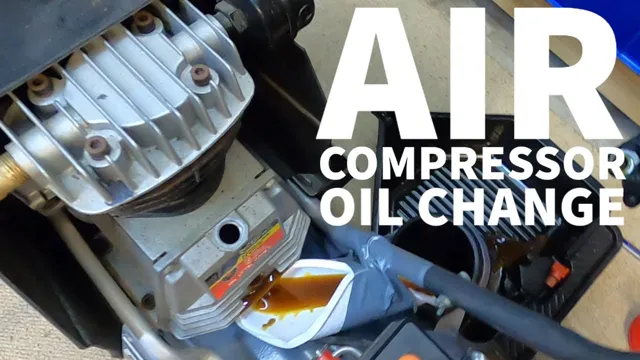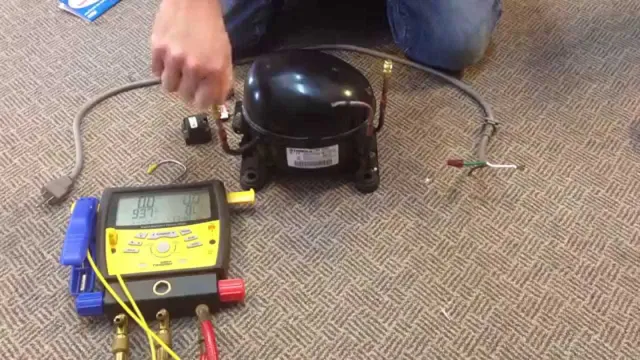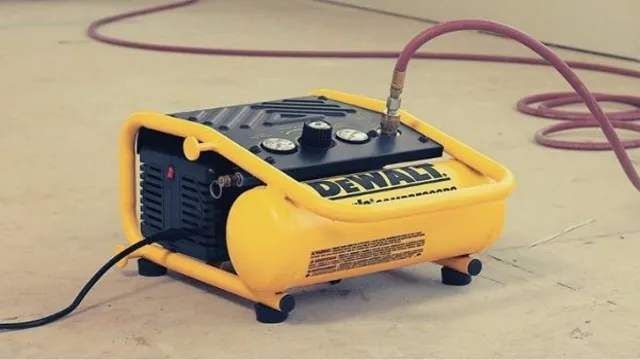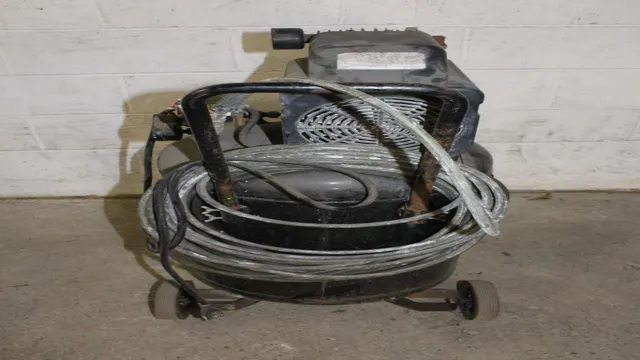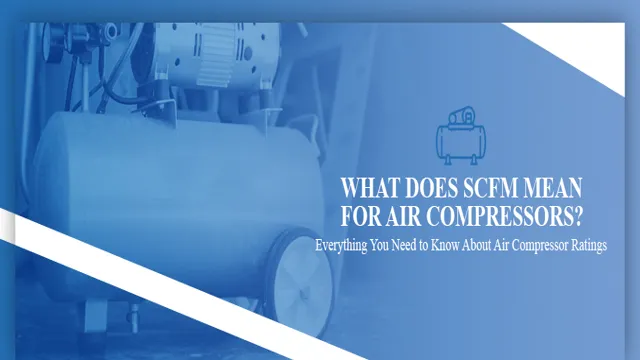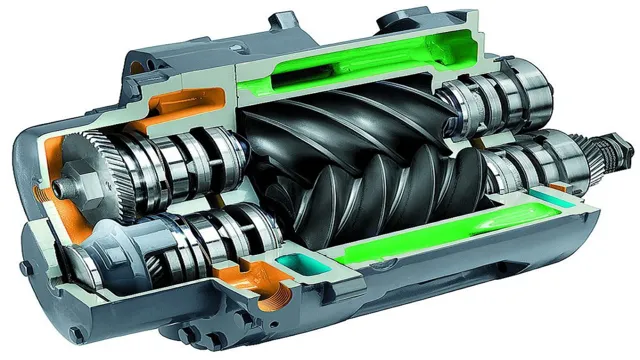What is a Rotary Air Compressor and Why is it a Must-Have for Industrial Applications?
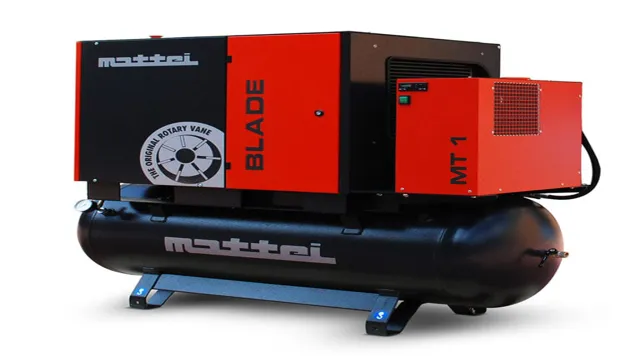
If you’re interested in understanding how compressed air is generated for industrial use, the Rotary Air Compressor is a good starting point. It’s a relatively simple machine that compresses atmospheric air using rotary motion. But don’t let the simplicity fool you – this machine can power entire factories and support a range of industrial applications.
The Rotary Air Compressor is designed to compress large amounts of air in a short amount of time using a positive displacement process. Unlike centrifugal compressors which rely on high-speed impellers to push air towards the center and create pressure, a rotary compressor uses two interlocking helical screws called rotors. The screws rotate in opposite directions, pushing air from the inlet to the outlet of the compressor, resulting in compressed air.
The efficiency of this process is due to the fact that the motion of the rotors creates a smooth, continuous airflow without turbulence. The rotary compressor is particularly beneficial for large scale industrial applications because of its high output and low maintenance requirements. Additionally, rotary compressors are able to maintain a constant supply of compressed air, given their ability to function continuously with little to no downtime.
Whether you’re powering machinery or running an assembly line, understanding the basics of the Rotary Air Compressor can help you make informed decisions when it comes to choosing the right compressor for your needs. Stay tuned for more information on the specifications and applications of this powerful machine.
Definition and Function
Rotary air compressors are machines designed to compress air using two rotating interlocking screws. They are commonly used in a wide range of industries, including manufacturing, automotive, and construction. These compressors work by sucking in air through an inlet valve and compressing it to a high pressure before expelling it through an outlet valve.
The working principle of rotary air compressors is based on the displacement principle, where air is enclosed in a space and then compressed by reducing its volume. Rotary air compressors come in different sizes and capacities, and they are designed to provide consistent and reliable compressed air supply for various applications such as powering tools and machinery or providing compressed air storage for pneumatic systems. Due to their efficiency and reliability, rotary air compressors are a popular choice for many industrial applications.
How it Operates
The term “How it Operates” refers to the workings of a particular system or process, including the various components, mechanisms, and interactions involved in its function. A clear understanding of how something operates is essential for troubleshooting, maintenance, and optimization, as well as for innovation and improvement. The function of any given system depends on its specific purpose, but in general, it involves input, processing, and output.
Input refers to the initial data or stimuli that the system acts upon, processing involves the manipulation and transformation of that input through various stages or steps, and output refers to the resulting output or outcome of that process. Understanding how a system operates can help identify potential issues, optimize performance, and develop new and improved versions of the system. This knowledge is valuable in various contexts, from engineering and technology to business and management.
Ultimately, the better we understand how systems operate, the more effective and efficient we can be in creating, using, and improving them.
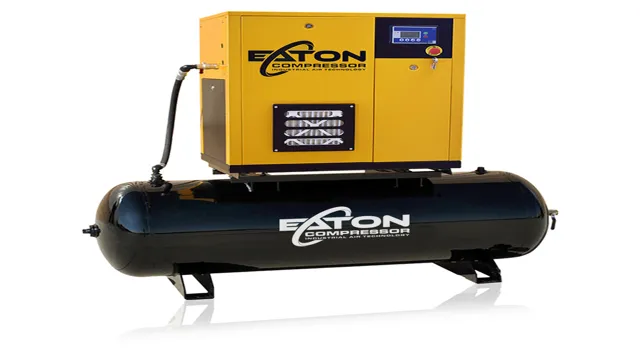
Types of Rotary Compressors
Rotary compressors are commonly used in refrigeration and air conditioning systems to compress refrigerant gas into a high-pressure state for cooling purposes. These types of compressors operate by using a rotating blade or scroll to compress gas. One of the most common types of rotary compressors is the scroll compressor, which uses two interlocking spirals to compress gas.
Another type of rotary compressor is the screw compressor, which uses two interlocking screws to compress gas. Both types have advantages and disadvantages, but they are known for their efficiency, quiet operation, and compact size. Regardless of the type of rotary compressor used, it is an important component of any refrigeration or air conditioning system, playing a crucial role in maintaining a comfortable temperature.
Advantages of a Rotary Air Compressor
A rotary air compressor is a machine that compresses air by using rotating, positive displacement mechanisms. These compressors are widely used in various applications, from powering pneumatic tools in industrial settings to inflating tires and swimming pool toys for home use. One of the main advantages of a rotary air compressor is that it can generate a higher output of compressed air than other types of compressors, while consuming less energy.
They are also compact, efficient, and reliable, making them an ideal choice for different industries and businesses. With a rotary air compressor, you can expect a continuous flow of compressed air that can power multiple tools and equipment at the same time, boosting productivity and efficiency in your workplace. So regardless of what you need it for, if you want a reliable and efficient air compressor that can handle different operations and deliver quality results, then a rotary air compressor may be your best bet.
Efficiency and Energy Savings
If you’re looking to increase efficiency and save on energy costs in your compressed air system, a rotary air compressor could be the answer. Unlike reciprocating compressors, which use pistons to compress air, rotary compressors use precisely machined rotors to accomplish the same task. This results in less heat buildup and fewer mechanical losses, making rotary compressors much more efficient.
In addition, rotary compressors often have variable speed drives, allowing them to adjust their output to match the demand of your system. This helps to reduce wasted energy and further increase efficiency. So if you’re looking to save money on your energy bill and increase the overall efficiency of your system, consider switching to a rotary air compressor.
Low Maintenance and Durability
A rotary air compressor is an excellent addition to any facility for many reasons. One of the biggest advantages is its low maintenance requirements, which is a major factor in preventing downtime. Unlike other types of compressors, rotary air compressors have fewer components that require regular upkeep.
This means that they can operate continuously for longer periods, without the need for frequent repairs or servicing. Additionally, rotary air compressors are known for their durability, which makes them ideal for heavy-duty applications. They can withstand harsh working conditions, high temperatures, and varying levels of demand.
The longevity of a rotary air compressor also makes it a wise investment, as it can provide reliable air compression for years to come. So, if you’re looking for a cost-effective and efficient air compressor solution, a rotary air compressor is definitely worth considering.
Flexible Design and Operation
When it comes to industrial air compressors, a rotary air compressor is a popular choice due to its many advantages. One major advantage is its flexible design and operation. These compressors can handle a variety of load demands and can operate at varying speeds, making them versatile and efficient.
With the ability to adjust flow rates and pressures, rotary air compressors can adapt to different applications and provide the necessary amount of compressed air without wasting energy. Additionally, their compact size and low noise levels make them an attractive option for businesses looking to save space and reduce noise pollution. Overall, investing in a rotary air compressor can improve productivity, reduce costs, and contribute to a greener workplace.
Applications of Rotary Air Compressors
A rotary air compressor is a type of compressor that utilizes rotating mechanisms to compress air. These compressors are commonly used in a variety of industrial and commercial applications. They are known for their efficiency, reliability, and low maintenance requirements.
Rotary air compressors are often used in large-scale manufacturing operations, as they are capable of delivering high volumes of compressed air with consistent pressure levels. They are also used in construction, automotive, and HVAC industries. One of the main advantages of rotary air compressors is their ability to operate continuously without overheating, which makes them ideal for applications that require constant compressed air supply.
So, if you’re looking for a compressor that can deliver high volumes of compressed air in an efficient and reliable manner, a rotary air compressor might be the perfect solution for your needs.
Industrial Uses
Rotary air compressors have a wide range of industrial applications due to their efficiency and durability. One of their most common uses is in the production of compressed air for pneumatic tools and machinery. They are also used in large-scale manufacturing processes like food and beverage production, pharmaceuticals, and automotive assembly lines.
Rotary air compressors provide a reliable source of power for compressed air systems, making them beneficial for the oil and gas industry as well. They are also used in hospitals and laboratories for medical and scientific purposes. The continuous and reliable air supply provided by rotary air compressors makes them an essential component in many industrial processes.
Their versatility allows them to be used in a variety of applications, making them an ideal choice for industries where compressed air is needed on a continuous basis. Overall, the applications of rotary air compressors are vast, making them an integral part of many industries.
Construction and Mining Applications
Rotary air compressors are incredibly versatile and can be used for a variety of construction and mining applications. One of the most common uses for these compressors is powering pneumatic tools such as jackhammers, drills, and nail guns. They are also used to run conveyor belts, powering ventilation systems, and to supply air to pneumatic actuators for heavy-duty machinery.
Mining and construction sites operate in tough environments, which is where rotary air compressors shine. Thanks to their ability to provide consistent and reliable pressure, even in low-oxygen or high-altitude areas, they are an essential tool for those in these industries. Additionally, rotary air compressors can be tailored to meet specific requirements and can be modified to deliver compressed air in the necessary volume and pressure levels required for the task at hand.
Overall, rotary air compressors are a valuable asset for those in the construction and mining industries, providing reliable power to complete tough jobs efficiently and effectively.
Conclusion and Final Thoughts
In conclusion, a rotary air compressor can be described as a mechanical wizard that magically turns air into power. It’s a machine that works tirelessly, compressing air down to smaller volumes, to provide a continuous stream of compressed air for various applications. Whether it’s powering your air tools, inflating your tires, or keeping your factory equipment up and running, the rotary air compressor is an essential tool in any industrial or DIY setting.
So, the next time you hear a satisfying hum coming from your compressor, you can smile knowing that you’re witnessing a true mechanical marvel at work.”
FAQs
What is a rotary air compressor used for?
A rotary air compressor is used to compress air in a continuous, rotating motion for various industrial applications.
How does a rotary air compressor work?
A rotary air compressor works by using two rotors, which rotate in opposite directions to compress the air.
What are the advantages of using a rotary air compressor?
The advantages of using a rotary air compressor include high efficiency, low maintenance, and quiet operation.
What are the different types of rotary air compressors?
The different types of rotary air compressors include screw compressors, vane compressors, and scroll compressors.
How do you maintain a rotary air compressor?
To maintain a rotary air compressor, regular checks on oil levels, filtration systems, and pressure levels are necessary.
What are the applications of a rotary air compressor?
Rotary air compressors are used in various applications such as in the manufacturing industry, automotive industry, and in the medical industry.
What is the difference between a rotary air compressor and a reciprocating air compressor?
Unlike a reciprocating air compressor, which compresses air in a piston motion, a rotary air compressor compresses air in a continuous, rotating motion.

